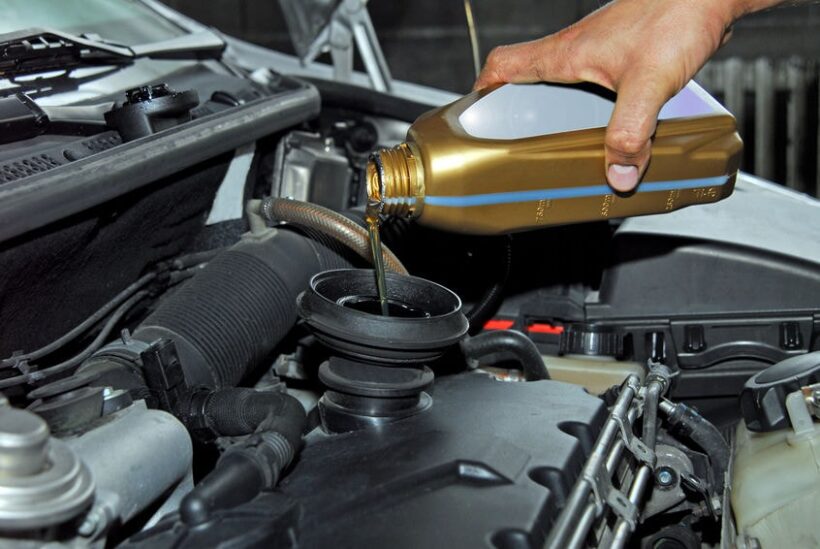You fall into one of these two categories, presumably. Either you regularly replace the oil in the car, or you disregard it until the dipstick is completely empty or the “oil” light starts to flash on your dashboard. Okay, so perhaps you occupy a middle ground. But are you aware of the significance of motor oil in your engine and the need for frequent replacement with high-quality oil
Many drivers undoubtedly have a hazy understanding of the necessity of routine engine oil changes. Most people would probably concur that an engine running short on oil is terrible. Or be aware that contaminated, outdated oil may be a reason for alarm. Yet why? What does your car’s motor oil do? What happens if you put off oil changes for too long? Or use the incorrect type of oil?
Trusted companies like EDO Performance provide you with outlets, turbochargers, suspensions, engine oils, and NSX widebody kits. The engine’s performance can be impacted by motor oil, and we should know what type of engine oils should be used in different kinds of automobiles. The ways in which motor oil affects an engine’s performance are listed below:
The Mission Of Motor Oil

There are a whole bunch of moving metal elements within your engine that work together to generate power. All of those metallic parts would be grinding against one another if it weren’t for the engine oil. The motor oil acts as a thin coating to lubricate those parts, lessen friction, and stop excessive heat from accumulating.
You can probably guess that motor oil has a rather demanding task to accomplish. Not just any oil will do, either. For instance, a particular grade of motor oil is required to operate each engine. The viscosity of the oil is described using grade (or weight). Oil must be both thick enough to cover those parts and thin enough to stream into every crevice of your engine. The quality of motor oil varies from brand to brand and product to product. Your engine oil should adhere to the American Petroleum Institute’s guidelines (API).
If you don’t change your oil frequently enough, damaging debris, particles, and acids can corrode essential engine components. Additionally, it causes more sludge to accumulate and reduces the oil’s capacity to disperse heat, which raises engine stress. So it’s not a good idea to change your oil too seldom. What impact does it have on performance, though?
Engine’s Performance

Performance is primarily meant to refer to gas mileage. The fuel economy will suffer if an engine is running on old, sluggish oil. Oil loses a certain amount of lubricity when it thickens and gets sluggish after its use-by date, which makes the engine work even harder. Due to heat exposure, old oil will degrade, losing its capacity to retain the viscosity required to perform its function. If the viscosity of the oil is incorrect, it will fail to reach the necessary locations in the engine. The engine loses horsepower and gas mileage as a result of running hotter and less effectively.
When Should You Replace Your Car’s Oil?

Motor oil degrades over time with repeated usage. Oil has to be updated alongside the oil tank that filters out unwelcome particles, much like brake pads do. But how frequently should your oil be changed?
Well, the old “oil change” cliché from decades ago actually doesn’t really apply to your engine unless you drive in the most extreme conditions. Naturally, changing your oil so regularly won’t hurt you (apart from your finances), but the majority of automakers advise longer intervals, typically 5K miles or more.
So how do you determine when it’s time for an oil change? When instructed to do so by the manufacturer of your car. Your owner’s manual has printed instructions for routine maintenance. Occasionally, intervals are more than 5K miles (10K miles). There are manufacturer recommendations for each engine that you ought to heed.
You may be able to extend the time between oil changes if you convert from conventional to synthetic oil. Quality synthetic motor oil contains higher-caliber chemicals than regular oil and is more consistent at the molecular level. It is also more stable and resistant to heat breakdown. It offers superior defense and endures longer.
Consult your owner’s manuals for the recommended oil type from the manufacturer, then ask a reputable repair facility if you can swap your engine over to synthetic motor oil.
What Happens If You Wait Too Long?
You probably won’t do much harm if you skip an oil change by a few 100 or 1000 kilometers. However, with time, old oil degrades and transforms into sludge, which sticks to engine parts, clogs passages, and is unable to fit into the precise tolerances of a contemporary motor. The more sludge accumulates, the longer you put off changing your oil.
Additionally, damaging grit, metal flakes, and acids that build up in your oil can corrode engine components. The oil’s capacity to keep your engine cool also declines. By exceeding the recommended miles for your subsequent oil change, you may not directly cause the death of your engine, but you may hasten its demise.
Sludge and thermal breakdown are two of the leading causes of engine failure. Therefore, skipping oil changes may be pretty harmful, but having them done on schedule will increase your engine’s lifespan. The easiest and most crucial steps you can take to extend the lifespan of your car are periodic oil and filter changes.
What If You Use The Wrong Oil?

Many vehicle owners have the incorrect assumption or notion that heavier oil lubricates better than thin oil. When engine tolerances were less perfect than they are now, several earlier engines profited from heavier oil that bridged gaps between engine components. A contemporary engine, however, has minimal room between its components and requires low-viscosity oil to keep it properly lubricated.
Heavy oils were popular decades ago, but today you may frequently find 5W-20, 0W-20, and even 0W-16 on the shelves. While heavier oils cannot, such oils can offer protection. Everything is based on the type of oil that should be used in your engine.
An excessive amount of motor oil will not flow, while thinner oil will. This implies that engine parts can become worn out from metal-on-metal contact. On the other side, excessively thin oil might not have the shear capacity required by your engine. Again, metal-on-metal contact and a drop in oil pressure might result. In other words, utilizing the improper quality of oil will lead to less lubrication and a shorter lifespan for the engine.
Conclusion
The benefits of quality motor oil are many. Reduced friction, excellent cold weather, extreme temperature protection, reduced deposits, smoother startup, and improved fuel economy are all made possible through routine oil and filter changes with quality products. Not only will your engine work more effectively. It will also work longer.

